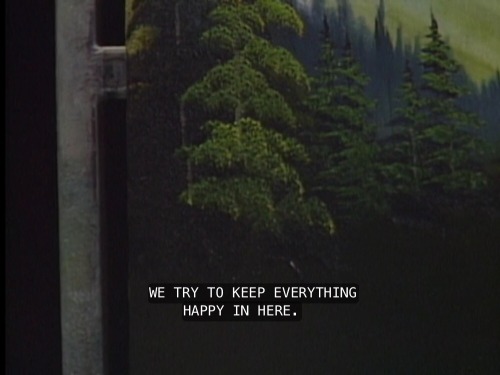Things I Wish I’d Known In My First Year Of University
things i wish i’d known in my first year of university
I’m reaching the end of my time at university and it’s got me all sentimental. and regretful. There are a number of things that I had learned during my time at university that I wish I’d known during first year.
Read everything. The only valid excuse for not reading everything on the reading list is that you didn’t have time, not that you found it boring, or that it wasn’t useful. Because there’s nothing scarier than trying to write an essay on something you studied a month ago, and you have no notes on the topic.
Revise constantly. I wish I’d revisited everything I did a week after I did it, just as a recap. I tended to focus on what I was doing in the moment because it felt the most important thing at the time. Well, during exams, everything is equal. And it’s so frustrating not quite being able to remember something. So, revise. Even just for ten minutes.
Don’t spend all of your money on impulse. I’ve bought so much rubbish that I really don’t need. And if I’d saved that money, I could have gone on holiday. Save every last penny you can.
Eat well. I just said that you should save all the money you can, but I think that food is one exception to that rule. Try and save money where you can, obviously, but don’t go for days and days without fresh vegetables because you’re saving money for a holiday. Your mind, as well as your body, needs food.
Go and talk to professors in their student hours. I used to find this so awkward. To be honest, I still do. But if you’re going sending them an email and asking for clarification on a topic, consider maybe popping into their office when it’s open to students. And tell them if you’re struggling! If you don’t let them know, then they can’t help you.
Take hot drinks with you, to your lectures or to the library. Don’t spend all your money in the library cafe. Bring a flask of tea, and loads of study snacks in a packed lunch box. Trust me on this.
Make time to meet up with friends you haven’t seen in ages. Don’t wait for them to ask you. I make sure to socialise with my friends at least twice a week. And by socialise, I don’t mean getting blind drunk and going clubbing. Sit down and have lunch together. Chat. Get to know each other properly. Friendships formed over alcohol never last as long as friendships formed through actual conversation.
Do stuff that the university puts on for students. Join societies. Get involved. One of the best nights I ever had at university was a masquerade ball that my college put on. And for some reason, I’ve never done anything like that since then? And I don’t understand why! University is for making memories, and I don’t really have many!
Travel around your university town. If you’re university is on a campus, don’t let your life revolve around that one place. If you’ve travelled away from home to go to university, then make it worth your while! See the sights, be a tourist, get on a bus and go to a random town and buy ice cream.
Experiment. This is the time. Dye your hair blue, join a weird and random society and take up a hobby you’d never dreamed of. If you want to try drugs, make sure it’s a safe environment and do your research before hand. If you don’t want to do that kind of thing, then don’t judge other people for doing so.
Give yourself a day off per week. When you’re at university and you’ve got loads of work, it’s tempting to just work constantly - or at least, to work every day, if not all the time. But it’s so much better for your mental state to take a day off to just relax.
Keep up with your chores. When you’re stressed about an assignment, you don’t want to be also stressed about that pile of washing up accumulating by the sink. Keep your room tidy too - clear space, clear mind.
Be kind to everyone. You’re going to meet a lot of people at university, some you’re going to hit it off with immediately. But there will be some who really rub you up the wrong way. Don’t worry about it, it’s completely fine to not like someone. But don’t be mean to them. This isn’t high school, you’re all here to learn and there’s just no need to make them feel bad about themselves. It’s just petty and childish.
Think about the future. I know that you’re completely wrapped up in your university life right now, but you’re going to have to venture out into the real world at some point. Do things that might help your future career: volunteer, get a job, join a sports club, make connections. University isn’t, sadly, forever.
There you have it! The advice that I would have given myself in the first year of university. Whether you’re just about to start university, or whether you’re just about to leave, I hope this is useful to you.
More Posts from Amandadiamond and Others
self discipline tips
here are tips I discovered very recently:
something is better than nothing. 5 minutes of work are better than zero. Just because you missed something on your schedule doesn’t mean you can’t still work on it, even for 5 minutes. Grow and build on this.
second drafts / reviews can be done after.
Don’t think you are going to do your very best work on the first try. Take the weight of perfectionism off your shoulders.
don’t think about doing it. just do it as fast as you can.
build on your productivity, not your failures.
If you come from a past of procrastinating and now feel motivated to change and discipline yourself, do NOT try to do everything at once.
if you have a set of different goals to accomplish, begin with the most important one. Wait until the rotine of working for that one settles in (you feel productive and comfortable-ish), and then begin with the next. Repeat.
this way you’ll be building your way up and not juggling everything at the same time, hoping everything works out.
be patient with yourself, you’ll get there!
set smaller deadlines for your goals
have monthly and weekly-ish deadlines
e.g. if you are doing a project, due 22nd Feb, set personal deadlines, like have Introduction written by 2nd Feb, have Methods written by 10th Feb, have project complete by 18th Feb.
take them as seriously as you possibly can, don’t miss out on yourself.
write realistic daily tasks and don’t stop until you finish them. after them you can do whatever you want
on writing realistic daily tasks, the secret is knowing you can only do so much in one day, but trusting you can accomplish everything in the course of any period of time (a week, or 2 weeks or a month, etc.) because you will combine the work from all these different days.
it’s very tempting to write down all the tasks you need to accomplish in one day to just get over with it, but the real deal is you won’t accomplish half of them. You’ll feel very unproductive then, wich leads to demotivation.
spread daily tasks in the time necessary.
have a consistent sleep schedule.
if your mind isn’t ready everything will fall apart.
have one rest day per week where you plan nothing, do whatever you want except studying. this can be harder than you expect!
(don’t forget these are effective only if you actually put them into practice! good luck babes!!)










How to Study when Stuck at Home
In light of the amount of schools/colleges being shut down globally thanks to the corona virus/covid-19, I thought a little info graphic could be of use to people!
*click for better quality!





hey! i made my first graphic!! i hope it helps 🥰
self discipline tips
here are tips I discovered very recently:
something is better than nothing. 5 minutes of work are better than zero. Just because you missed something on your schedule doesn’t mean you can’t still work on it, even for 5 minutes. Grow and build on this.
second drafts / reviews can be done after.
Don’t think you are going to do your very best work on the first try. Take the weight of perfectionism off your shoulders.
don’t think about doing it. just do it as fast as you can.
build on your productivity, not your failures.
If you come from a past of procrastinating and now feel motivated to change and discipline yourself, do NOT try to do everything at once.
if you have a set of different goals to accomplish, begin with the most important one. Wait until the rotine of working for that one settles in (you feel productive and comfortable-ish), and then begin with the next. Repeat.
this way you’ll be building your way up and not juggling everything at the same time, hoping everything works out.
be patient with yourself, you’ll get there!
set smaller deadlines for your goals
have monthly and weekly-ish deadlines
e.g. if you are doing a project, due 22nd Feb, set personal deadlines, like have Introduction written by 2nd Feb, have Methods written by 10th Feb, have project complete by 18th Feb.
take them as seriously as you possibly can, don’t miss out on yourself.
write realistic daily tasks and don’t stop until you finish them. after them you can do whatever you want
on writing realistic daily tasks, the secret is knowing you can only do so much in one day, but trusting you can accomplish everything in the course of any period of time (a week, or 2 weeks or a month, etc.) because you will combine the work from all these different days.
it’s very tempting to write down all the tasks you need to accomplish in one day to just get over with it, but the real deal is you won’t accomplish half of them. You’ll feel very unproductive then, wich leads to demotivation.
spread daily tasks in the time necessary.
have a consistent sleep schedule.
if your mind isn’t ready everything will fall apart.
have one rest day per week where you plan nothing, do whatever you want except studying. this can be harder than you expect!
(don’t forget these are effective only if you actually put them into practice! good luck babes!!)








8 Magical And Delicious Harry Potter Cocktails Source: Buzzfeed
Where food lovers unite.
Totally right 👌😂


lively and ethereal people VS sleep deprived creatures of the night
Real talk tips for studying
1. Get up early.
I know, it’s easier said than done. But it is going to be hard for the first 15-20 minutes, maybe even the first hour, but make yourself some coffee, and get the fuck out of that bed.
2. Do 3 useful things right after you get up.
This doesn’t have to be ‘cram one lesson’ or ‘take 500 pages of notes’. No. Brush your teeth, make yourself something nice to drink, comb your hair. Wash your face. Literally whatever you find useful, do it. It may take 10 minutes, but you will feel instantly better when you see you’ve done something.
3. Organize your study space.
I don’t mean organize all your highlighters by color. I mean arrange everything so it is within your reach. That means when you sit down to finally study, there won’t be any need for you to get up and get something.
4. Take breaks.
It’s easy to start scrolling through instagram, or facebook when you sit by a 200 page book. Trust me on this. But set an alarm when you plan on taking a break. Make the break your instagram time, or facebook time, or just chill time. Whatever you do, organize your time so you don’t leave anything out.
5. Divide your shit.
So you have a 300 page chapter to read. Or a 30 page paper to write. Divide it into smaller parts. For example, I will read through the first 30 pages and then take a break. Repeat. Or, I will write 3 pages and then relax. Repeat. Literally whatever shit you have, divide it into smaller chunks and then just tackle the chunks.
6. Don’t listen to music with lyrics.
There are a ton of ‘study music’ or ‘motivational music’ playlists on Youtube. Blast that. That way, you won’t find yourself mouthing the perfect lyrics to Shape of you, and not knowing shit about what you’ve been reading. I’ve been there one too many times and it’s just wasting time.
7. Don’t feel bad about not responding to texts, or not hanging out with friends.
There is time to study and time to play. No between. By all means you should go out and have fun. But your work time can only be your work time. That text can wait, that coffee date can wait. During the break you will have more than enough time to catch up. And your friends should understand that, after all, this is important to you so it should be for them too.
8. Drink water! ! !
This is the most used tip, but trust me, you get tired much quicker if you’re not hydrated. Get a nice ass bottle of water and fill that shit up. Everytime you finish a paragraph take a sip. (At least!)
9. Don’t worry too much.
I’ve lost countless hours by panicking and trying to reason with myself why I should just quit. And let me tell you, it’s very easy to get stuck in that vicious circle. But when you begin to worry, take a deep breath, drink some water and just do. Read that sentence. Write the opening line to your paper. Underline that unknown word. Just do. It will not go in vain. No effort is ever useless.
10. Relax.
You are not the first one to have trouble with this. You are not the only one struggling with this material. But you can do it. It is possible. In 10 years you won’t remember that godawful task or chapter. But you will remember taking shit into your hands. And that feeling when you accomplish your goal is going to be worth all the while.
That’s about it, worked for me. Just be real with yourself. Good luck and may the odds be ever in you favor!




Bob Ross cares about me

Forget overpriced schools, long days in a crowded classroom, and pitifully poor results.
These websites and apps cover myriads of science, art, and technology topics.
They will teach you practically anything, from making hummus to building apps in node.js, most of them for free.
There is absolutely no excuse for you not to master a new skill, expand your knowledge, or eventually boost your career.
You can learn interactively at your own pace and in the comfort of your own home. It’s hard to imagine how much easier it can possibly be.
Honestly, what are you waiting for?
Take an online course
edX — Take online courses from the world’s best universities.
Coursera — Take the world’s best courses, online, for free.
Coursmos — Take a micro-course anytime you want, on any device.
Highbrow — Get bite-sized daily courses to your inbox.
Skillshare — Online classes and projects that unlock your creativity.
Curious — Grow your skills with online video lessons.
lynda.com — Learn technology, creative and business skills.
CreativeLive — Take free creative classes from the world’s top experts.
Udemy — Learn real world skills online.
Learn how to code
Codecademy — Learn to code interactively, for free.
Stuk.io — Learn how to code from scratch.
Udacity — Earn a Nanodegree recognized by industry leaders.
Platzi — Live streaming classes on design, marketing and code.
Learnable — The best way to learn web development.
Code School — Learn to code by doing.
Thinkful — Advance your career with 1-on-1 mentorship.
Code.org — Start learning today with easy tutorials.
BaseRails — Master Ruby on Rails and other web technologies.
Treehouse — Learn HTML, CSS, iPhone apps & more.
One Month — Learn to code and build web applications in one month.
Dash — Learn to make awesome websites.
Learn to work with data
DataCamp — Online R tutorials and data science courses.
DataQuest — Learn data science in your browser.
DataMonkey — Develop your analytical skills in a simple, yet fun way.
Learn new languages
Duolingo — Learn a language for free.
Lingvist — Learn a language in 200 hours.
Busuu — The free language learning community.
Memrise — Use flashcards to learn vocabulary.
Expand your knowledge
TED-Ed — Find carefully curated educational videos
Khan Academy — Access an extensive library of interactive content.
Guides.co — Search the largest collection of online guides.
Squareknot — Browse beautiful, step-by-step guides.
Learnist — Learn from expertly curated web, print and video content.
Prismatic — Learn interesting things based on social recommendation.
Bonus
Chesscademy — Learn how to play chess for free.
Pianu — A new way to learn piano online, interactively.
Yousician— Your personal guitar tutor for the digital age.
How to Deal with Study Burnout

As students in this day and age, it’s quite common for us to juggle rigorous academic responsibilities and overwhelming extracurricular activities. As a result, we might feel burnt out. But what exactly is burnout?
Burnout is when you feel physically and mentally exhausted as a result of constantly lacking the energy required to fulfill the demands of your studying.
Burnout can be broken down into three parts:
Exhaustion is what causes you to feel tired all the time and unable to concentrate. You could also get sick or have trouble sleeping.
Cynicism or depersonalization is when you feel disconnected from those around you, e.g. your friends and family.
Inefficacy is a decrease in productivity, efficiency, or quality of your work.
How do you know if you have burnout?
Symptoms may vary, but they include:
Being unable to absorb new information
Intellectual exhaustion
Decreasing academic performance and productivity
Feeling like you need to prove yourself
Making yourself work even more, even though you’re exhausted or being unwilling to study further
Neglecting your needs
Long term fatigue
Showing disinterest in things you normally enjoy, e.g. hobbies or friends
Denying that something’s wrong with you (may manifest in the form of aggression)
Avoiding social interaction
Feeling empty and depressed
What can I do to fix it?
Here are some short term solutions for dealing with burnout.

1. Take a power nap Power naps are life changing. They help you recharge your energy and get you ready to start working again. They also improve learning, memory, creativity, alertness, and mood. I would recommend napping for 30 minutes at most, because anything more will lead to a longer sleep session.
Optional: drink coffee before your nap - something that takes a short while to consume like a shot of espresso - so that you’ll feel alert and revitalized afterwards!
2. Take a shower A cold one will wake you up, but a warm one will calm you down. I suggest starting with warm water, then ending with cold water.
3. Exercise Whether it’s playing soccer or doing yoga, the important thing is to get moving! Exercise releases endorphins or happy hormones that help you combat stress.
4. Run a quick errand This will help take your mind off things while also getting something done! You’ll also end up walking, which is technically a form of exercise.
5. Call or visit a friend Sometimes what we’re lacking is social interaction, and hanging out with a friend definitely helps. Whether it’s providing you with a distraction or giving emotional support, your friends are always there to help you. Plus, science has shown that being with friends reduces your cortisol (stress hormone) levels.
6. Eat a snack Preferably a healthy one. Eat something with proteins, vitamins, and fibers to boost your mood. Here’s a list of mood boosting foods.
7. Surf the web This requires A TON of discipline, but it’s definitely a game changer. Surfing the web is one of the most relaxing things you could do. I personally look for a good laugh during my study breaks, so I’d watch a comedy or scroll through memes to get those happy hormones up and running.
8. Do an activity you find interesting, e.g. a hobby We all need happiness in our lives, and our hobbies are perhaps the best way to find that joy. You could sit down with a page turning adventure, or go outside and shoot hoops, or listen to a podcast, or even bullet journal, as long as you’re having a good time.
9. Listen to music Music is one of the ways we gain energy, so I always make time for it during the day. However, you should choose the right music, because not all the music you love is going to make you feel energized. For me, it’s pop punk with hard hitting beats, thundering guitars, and really upbeat, enthusiastic vocals. Some of you might be energized by mellow music with dreamy vocals that make you feel like you’re floating in the clouds. If you choose the wrong music, you might just end up feeling sluggish and drained.
10. Get some fresh air Your brain needs 20% of the oxygen in your body. Fresh air brings more oxygen to your brain so that you can think more clearly, feel less tired, and concentrate more easily.
How do I make sure I don’t get it in the future?
Avoiding study burnout in the long term has a lot to do with our study habits - as well as our daily habits. We need to make sure that our bodies and minds receive the things they need, and that we aren’t overworking them.

1. Study a little at a time Break up your notes into smaller, more easily digestible pieces and learn a little at a time. This way, you’re not overwhelming your brain, and you have time to let that new knowledge settle in.
2. Time management Having a good study schedule is crucial in preventing burnout. You don’t want to force yourself to work at your slow hours. Aside from that, you definitely shouldn’t leave things until the last minute, and sticking to a schdule will help you pace yourself. Here’s a post I wrote on How to Make an Efficient Revision Schedule and How to Beat Procrastination.
3. Get enough rest I cannot stress enough that sleep is so important for you. It improves your cognitive functioning and also enhances your mood, making it less likely that you’ll get burnt out. Make sure to take power naps, too, if you feel like you need them.
You also really shouldn’t pull all-nighters. Sleep is also involved in cementing memories in your brain, so if you study a little before you sleep, you’re bound to remember more than if you studied a chapter during an all nighter.
Having trouble sleeping? Here’s a post I made about my night routine and how to get better sleep.
4. Cycle your study environments Your body and mind are bound to get tired from being in the same location for prolonged periods of time. The best way to fix that is to study in different places: at your desk, your backyard, the dining table, a cafe, a friend’s house, the library, etc.You should find a frequency that works for you. I like to switch it up every 2-3 days; some people change locations every week.
5. Eat well As I’ve mentioned before, healthy foods with protein, vitamins, and fiber greatly improve your mood and your physical health. Proper nutrition will give your brain the power it needs to push through. Also make sure not to skip meals; honestly you’ll just end up feeling terrible afterwards.
6. Take frequent breaks Let’s face it, we’re human, we’re bound to get tired from studying for a long time. Taking breaks enables our brains to digest the information we just learned in a pace that works for it. Breaks also help us focus on something other than studying, so that when we do get back to it, we’ll be ready to digest even more information.
7. Set realistic study goals You’re gonna memorize all 500 pages of your biology textbook in one day? Good luck with that. Some of you might be compulsive studiers, but this kind of habit isn’t very good for your brain or your physical health. Studies have shown that excess studying can lead to lower productivity, fatigue, and - you guessed it - burnout. In the end, this will result in lower academic performance, perhaps even in the long run. So instead of trying to study so much in one sitting or one day, break up your material into chunks.
8. Maintain your social life Wherever you lie on the introvert-extrovert spectrum, everyone needs social interaction once in a while. It keeps you sane and healthy. Go out with your friends, have a sleepover, or maybe even a study date.
9. Start the day right What we do in the morning can significantly affect our mood for the rest of the day. Sometimes we don’t even feel like getting up in the morning, or doing anything that day. One thing you should do is create a morning routine you enjoy to jumpstart your day. Here are 8 Morning Habits for Productivity.
10. Think positive When we’re feeling burnt out, it’s hard to not think negatively about everything. In reality, that just makes our condition worse. So think positively! Start small, like congratulating yourself for getting out of bed today, and then work your way up to bigger accomplishments, like finishing 2 chapters of your textbook.
11. Keep a stress diary This is kind of a new concept for me, but it’s really great. How it works is that each day, you would write down all the things that made you stressed and how they made you stressed. This will help you identify the things you’re doing that’s causing your burnout, e.g.
Too long study hours? take regular breaks
Too much time in the same place? cycle your study environment
Not eating properly? set aside time to eat healthy meals at least 2 times a day
Not doing the things you love? schedule in time for that, e.g. during your long breaks
Not getting enough human interaction? make a study group
Too much negative thinking? adopt a positive mindset (you can always start small)
Not getting enough sleep? fix your sleep schedule
And that’s all I have for you guys this time. Hope these tips will help you manage your stress and study burnout whenever you have them. And if you have any questions, don’t hesitate to drop an ask!
P.S. if any of you want to see the images in this post in better quality, click here (link to google drive)
-
 winterblackrose liked this · 1 year ago
winterblackrose liked this · 1 year ago -
 handaseishu reblogged this · 1 year ago
handaseishu reblogged this · 1 year ago -
 tiodifurecbi liked this · 1 year ago
tiodifurecbi liked this · 1 year ago -
 ristiobecomppo liked this · 1 year ago
ristiobecomppo liked this · 1 year ago -
 mutationnovel liked this · 1 year ago
mutationnovel liked this · 1 year ago -
 yenoodlethings liked this · 1 year ago
yenoodlethings liked this · 1 year ago -
 tankamoonmo liked this · 1 year ago
tankamoonmo liked this · 1 year ago -
 kierra117 reblogged this · 1 year ago
kierra117 reblogged this · 1 year ago -
 kierra117 liked this · 1 year ago
kierra117 liked this · 1 year ago -
 fixation-ally liked this · 1 year ago
fixation-ally liked this · 1 year ago -
 mae-byiwillstudy reblogged this · 2 years ago
mae-byiwillstudy reblogged this · 2 years ago -
 fairydrowning liked this · 2 years ago
fairydrowning liked this · 2 years ago -
 aspiringcollegestudent reblogged this · 2 years ago
aspiringcollegestudent reblogged this · 2 years ago -
 nerdy-as-heck liked this · 2 years ago
nerdy-as-heck liked this · 2 years ago -
 chiccynuggies69 reblogged this · 2 years ago
chiccynuggies69 reblogged this · 2 years ago -
 charmnotes liked this · 2 years ago
charmnotes liked this · 2 years ago -
 superblytinyghost reblogged this · 2 years ago
superblytinyghost reblogged this · 2 years ago -
 superblytinyghost liked this · 2 years ago
superblytinyghost liked this · 2 years ago
95 posts